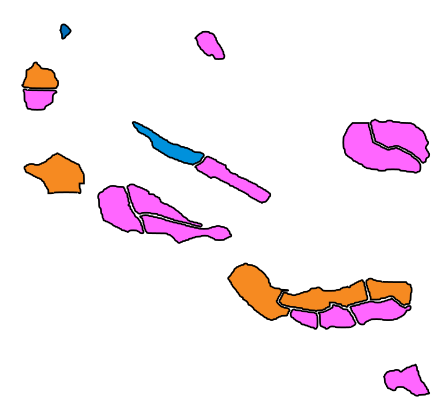| |||||||||||||||||||||||||||||||||||||||||||||||||||||||||||||||||||||||||||||||||||||||||||||||||||||||||||||||||||||||||||||||||||||||||||||||||||||||||||||
57 seats to the Legislative Assembly of the Azores [1] 29 seats needed for a majority | |||||||||||||||||||||||||||||||||||||||||||||||||||||||||||||||||||||||||||||||||||||||||||||||||||||||||||||||||||||||||||||||||||||||||||||||||||||||||||||
|---|---|---|---|---|---|---|---|---|---|---|---|---|---|---|---|---|---|---|---|---|---|---|---|---|---|---|---|---|---|---|---|---|---|---|---|---|---|---|---|---|---|---|---|---|---|---|---|---|---|---|---|---|---|---|---|---|---|---|---|---|---|---|---|---|---|---|---|---|---|---|---|---|---|---|---|---|---|---|---|---|---|---|---|---|---|---|---|---|---|---|---|---|---|---|---|---|---|---|---|---|---|---|---|---|---|---|---|---|---|---|---|---|---|---|---|---|---|---|---|---|---|---|---|---|---|---|---|---|---|---|---|---|---|---|---|---|---|---|---|---|---|---|---|---|---|---|---|---|---|---|---|---|---|---|---|---|---|
| Opinion polls | |||||||||||||||||||||||||||||||||||||||||||||||||||||||||||||||||||||||||||||||||||||||||||||||||||||||||||||||||||||||||||||||||||||||||||||||||||||||||||||
| Turnout | 45.4% | ||||||||||||||||||||||||||||||||||||||||||||||||||||||||||||||||||||||||||||||||||||||||||||||||||||||||||||||||||||||||||||||||||||||||||||||||||||||||||||
| |||||||||||||||||||||||||||||||||||||||||||||||||||||||||||||||||||||||||||||||||||||||||||||||||||||||||||||||||||||||||||||||||||||||||||||||||||||||||||||
 Map showing island constituencies won by political parties | |||||||||||||||||||||||||||||||||||||||||||||||||||||||||||||||||||||||||||||||||||||||||||||||||||||||||||||||||||||||||||||||||||||||||||||||||||||||||||||
| |||||||||||||||||||||||||||||||||||||||||||||||||||||||||||||||||||||||||||||||||||||||||||||||||||||||||||||||||||||||||||||||||||||||||||||||||||||||||||||
The 2020 Azorean regional election was held on 25 October 2020, [3] to determine the composition of the Legislative Assembly of the Autonomous Region of the Azores. All 57 members of the assembly were up for election.
Contents
- Background
- Leadership changes and challenges
- Electoral system
- Parties
- Parties running in the election
- Campaign period
- Party slogans
- Candidates' debates
- Opinion polls
- Voter turnout
- Results
- Regional summary
- Results by constituency
- Maps
- Aftermath
- Government approval
- Fall of the government
- Notes
- References
- External links
The Socialist Party (PS) again won the most votes with 39 percent, but lost their majority against all predictions. The party won 25 seats, 5 seats fewer than in 2016 and 4 seats short of a majority. [4] The Socialists' main opponent, the Social Democratic Party (PSD), made significant gains by winning almost 34 percent of the votes and 21 seats, two more than in 2016.
The CDS – People's Party (CDS-PP) was able to hold on to its status as the third biggest party in the region but lost almost 2 percent of the votes and one member on the regional parliament. Overall, CDS–PP got 5.5 percent of the votes and 3 seats. The Left Bloc (BE) was also able to hold on to their 2016 score, holding their 2 seats and winning a similar share of vote to that received in 2016, with 3.8 percent. The Unitary Democratic Coalition (CDU) was wiped out from the regional parliament by losing their sole member, elected in 2016, and polling just 1.7 percent of the votes. [5]
The big surprise in the elections was the arrival of new parties, from left to right, in the Azores regional parliament. CHEGA (CH) polled at 5 percent of the votes and was able to elect 2 members to the regional parliament. [6] People-Animals-Nature (PAN) also elected one MP as did the Liberal Initiative (IL). The new composition of the regional assembly gave the rightwing parties a majority over the left, with 29 against 28. [7]
On election night, PSD leader José Manuel Bolieiro said the night was a historic one for democracy and the autonomous region. [8] PS leader Vasco Cordeiro said the PS won the elections and should have a chance to form a government but acknowledged that the picture was challenging. [9] In the days after the election, both PS and PSD started talks with parties to see if deals were possible. [10]
On 2 November, PSD, CDS–PP and PPM announced they had reached an agreement to form a government. [11] Shortly afterwards, Carlos Furtardo, the leader of CHEGA also announced the party would support a PSD/CDS–PP/PPM government in the regional parliament. [12] Despite this announcement, there were divisions in CHEGA as the party's national leader, André Ventura, said no deal had been made with the Social Democrats and that the order was to not support the PSD led coalition. [13] However, a few days later, on 6 November, CHEGA and PSD reached an agreement after CHEGA dropped several of their demands. [14]
On the following day, 7 November, IL announced it had also reached an agreement with PSD for parliamentary support. Thus the government would be formed by a coalition of PSD, CDS-PP and PPM (26 MPs) with parliamentary support of CHEGA (2) and IL (1), totalizing a majority of 29 out of 57 seats in the parliament. [15]
On that same day, the Representative of the Republic in the Azores, Pedro Catarino, after hearing all parties represented in the regional parliament, appointed José Manuel Bolieiro as President of the Regional Government and asked him to form a government. [16] On 24 November, José Manuel Bolieiro and his cabinet were sworn in to office. [17]
The turnout in these elections increased compared to the previous one, with 45.4 percent of voters casting a ballot, compared with the record-low 40.9 percent in the 2016 elections.








